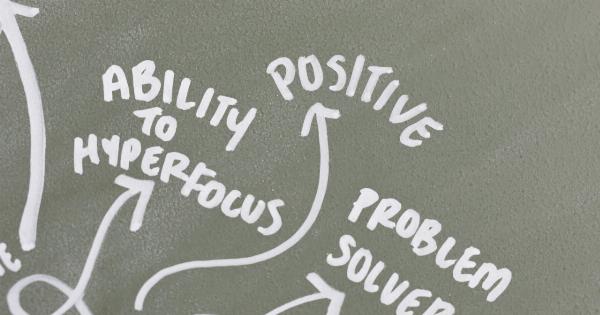Anticipation is a natural human tendency to predict future events or to imagine possible outcomes. While it is a handy skill, it can also be a double-edged sword that can lead to anxiety, stress, and disappointment if not handled properly.
This article will explore the concept of anticipation, the positive and negative effects it can have on your life, and strategies that can help you manage it effectively.
What is Anticipation?
Anticipation refers to the ability to predict what is going to happen in the future or to imagine possible scenarios in your mind.
It is an innate human skill that helps us prepare for what’s to come, avoid potential dangers, and achieve our goals. Anticipation is closely linked to motivation, as it can provide the necessary drive to pursue our objectives and reach for success.
However, anticipation can also have some downsides, such as causing anxiety, stress, and disappointment. When we anticipate a particular outcome too much, we may become obsessed with it and overlook other possibilities.
We may also set unrealistic expectations, leading to frustration and disappointment when things don’t turn out the way we thought they would.
The Positive Side of Anticipation
Anticipation can have many positive effects on our lives. Here are some of the ways it can be beneficial:.
1. Increased Motivation
When we anticipate future events or outcomes, we can get a boost of motivation to help us work toward our goals.
For example, if we are looking forward to a vacation, we may work harder to finish our assignments at work or school so we can fully enjoy our time off. Anticipation can provide a sense of purpose and direction, which can be helpful in achieving our objectives.
2. Better Preparation
Anticipation can also help us prepare for potential challenges or obstacles that may arise in the future. If we anticipate a difficult conversation with someone, we may think ahead about what we want to say and how we can handle the situation.
This can enable us to be more confident and effective when the time comes.
3. Positive Emotions
Anticipation can elicit positive emotions such as happiness, excitement, and joy. When we look forward to something, we experience a sense of anticipation that can be pleasurable in itself.
Even if the event or outcome doesn’t live up to our expectations, the anticipation alone can still provide a positive experience.
The Negative Side of Anticipation
While anticipation can be a beneficial skill, there are also some negative effects associated with it. Here are some of the ways anticipation can be detrimental to our well-being:.
1. Anxiety and Stress
When we anticipate future events or outcomes, we may become anxious or stressed about them. This can lead to negative physical and mental reactions, such as headaches, muscle tension, and difficulty sleeping.
In some cases, anticipation can even lead to anxiety disorders or panic attacks.
2. Disappointment
If we anticipate a particular outcome too much, we may become fixated on it and overlook other possibilities.
This can lead to unrealistic expectations, which can ultimately result in disappointment if things don’t turn out as we thought they would. For example, if we anticipate getting a promotion at work, we may feel disappointed and frustrated if it doesn’t happen.
3. Reduced Enjoyment
Anticipation can sometimes detract from our enjoyment of the present moment. If we are too focused on looking forward to something in the future, we may miss out on the pleasure of experiencing the present.
We may also feel disappointed when the anticipated event is over, leading to a sense of letdown and a lack of fulfillment.
Managing Anticipation
The key to managing anticipation is to find a balance between looking forward to future events and living in the present. Here are some strategies that can help you manage anticipation effectively:.
1. Focus on the Present
Practice mindfulness and focus on the present moment. Instead of constantly thinking about the future, try to fully engage in your current experiences and appreciate the simple pleasures of life.
By living in the present, you can reduce anxiety and stress and enjoy life to the fullest.
2. Manage Expectations
Be realistic about your expectations for the future. Don’t fixate on a particular outcome or scenario, as this can lead to disappointment and frustration if things don’t go as planned.
Instead, be open to different possibilities and embrace the ups and downs of life.
3. Practice Self-Care
Engage in activities that promote relaxation and stress relief, such as meditation, yoga, or exercise. Take care of your physical and mental health by getting enough sleep, eating nutritious foods, and seeking professional help if needed.
By prioritizing self-care, you can reduce anxiety and stress and improve your overall well-being.
4. Cultivate Gratitude
Focus on the good things in your life and cultivate an attitude of gratitude. When you appreciate the positive aspects of your life, you can improve your mood and outlook on life.
This can also reduce the tendency to focus excessively on future events and outcomes.
Conclusion
Anticipation can be a helpful skill that provides motivation and direction in our lives. However, it can also have negative effects, such as anxiety, stress, and disappointment.
By managing anticipation effectively, you can strike a balance between looking forward to the future and enjoying the present moment. Practice mindfulness, manage expectations, prioritize self-care, and cultivate gratitude to live a fulfilling and satisfying life.






























